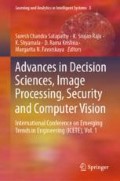Abstract
The world became interactive and socially active now-a-days because of the increase in different types of content sharing applications. These content sharing applications are social media platforms which provide various features so that users can effectively interact and share their thoughts and ideology. One such platform is a discussion forum which promises the anonymous posting of user’s views and complaints. The spammers target the forums as the craze of the forums increase. Though these platforms act as medium of knowledge sharing, all of the users don’t use these platforms for a positive cause. They are also being used to abuse or bully targeted people taking advantage of their anonymous feature. Spamming and cyber bullying has grown rapidly to a limit that social media is being termed harmful. By reading spam and vulgar comments, readers will be diverted. Main aim is to detect these bad comments which are vulgar, inappropriate or not related to the specific context. The research is not based on the static contents but it live streams the comments and the entire research is being done. The research is based on NLP, Sentiment calculation and topic detection.
Access this chapter
Tax calculation will be finalised at checkout
Purchases are for personal use only
References
Sahami M, Dumais S, Heckerman D, Horvitz E (1998) A Bayesian approach to filtering junk e-mail. In: AAAI-98 workshop on learning for text categorization, Madison, Wisconsin, July 1998, pp 98–105
Carreras X, Marquez L (2001) Boosting trees for anti-spam email filtering. In: Proceedings of RANLP-01, 4th international conference on recent advances in natural language processing, pp 58–64
Davison BD (2000) Recognizing nepotistic links on the web. In: AAAI 2000 workshop on artificial intelligence for web search, pp 23–28
Drost I, Scheffer T (2005) Thwarting the nigritude ultramarine: learning to identify link spam. In: ECML’05 Proceedings of the 16th European conference on machine learning, Berlin, Germany, pp 96–107
Mishne G, Carmel D, Lempel R (2005) Blocking blog spam with language model disagreement. In: Proceedings of the first international workshop on adversarial information web (AIRWeb), Chiba, Japan, May 2005, pp 1–6
Bhattari A, Dasgupta D (2011) A self-supervised approach to comment spam detection based on content analysis. Int J Inf Secur Priv (IJISP) 5(1):14–32M
Siersdorfer S, Chelaru S (2010) How useful are your comments? analyzing and predicting YouTube comments and comment ratings. In: Proceedings of the 19th international conference on World Wide Web, pp 891–900
Dong R, Schaal M, Smyth B Topic extraction from online reviews for classification and recommendation
Author information
Authors and Affiliations
Corresponding author
Editor information
Editors and Affiliations
Rights and permissions
Copyright information
© 2020 Springer Nature Switzerland AG
About this paper
Cite this paper
Sai Nikhita, N., Hyndavi, V., Trupthi, M. (2020). Detection of Inappropriate Anonymous Comments Using NLP and Sentiment Analysis. In: Satapathy, S.C., Raju, K.S., Shyamala, K., Krishna, D.R., Favorskaya, M.N. (eds) Advances in Decision Sciences, Image Processing, Security and Computer Vision. ICETE 2019. Learning and Analytics in Intelligent Systems, vol 3. Springer, Cham. https://doi.org/10.1007/978-3-030-24322-7_17
Download citation
DOI: https://doi.org/10.1007/978-3-030-24322-7_17
Published:
Publisher Name: Springer, Cham
Print ISBN: 978-3-030-24321-0
Online ISBN: 978-3-030-24322-7
eBook Packages: Intelligent Technologies and RoboticsIntelligent Technologies and Robotics (R0)

